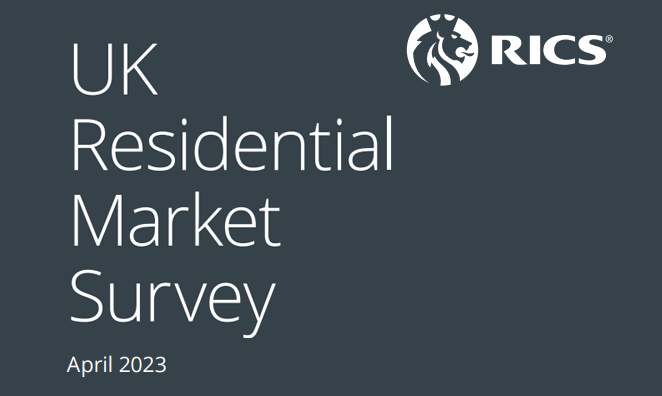The Royal Institution of Chartered Surveyors (RICS) Residential Market Survey for April 2023 revealed that although the UK housing market remains weakened, the decline in house sales is slowing, indicating a potential upswing in the future. The report highlights that high borrowing costs and economic uncertainty continue to pose challenges for prospective home buyers.
RICS recorded a drop in new buyer demand, with a net balance of -37% in April, down from -30% in March. However, most indicators have shown slight improvements since the end of 2022. Agreed sales in April improved to a net balance of -19%, the least negative reading since July 2022. Meanwhile, new instructions remained relatively flat, with the net balance declining to -4% from -6% in March.
The survey’s feedback on house prices remained negative, with a net balance of -39% in April, although this was less negative than the net balances of -43% and -47% recorded in March and February. Price expectations for the next twelve months continued to improve, with a net balance of -16% in April compared to -24% in March.
RICS Chief Economist Simon Rubinsohn commented, “Although the newsflow around housing does appear to have steadied over the past month, key indicators from the RICS survey point to a series of challenges in both the sales and lettings space.” Rubinsohn emphasised that the delivery of more housing supply is critical for addressing the challenges in both the sales and lettings markets.
RICS Senior Public Affairs Officer Samuel Rees added, “The supply of affordable housing for owners and renters continues to be a prominent issue in our latest Residential Market Survey.” Rees called on the government to reinstate its housebuilding target to drive supply and provide market confidence that new homes are forthcoming. Additionally, he urged the government to ensure that proposed rental market reforms support both landlords and tenants while maintaining and growing supply.








